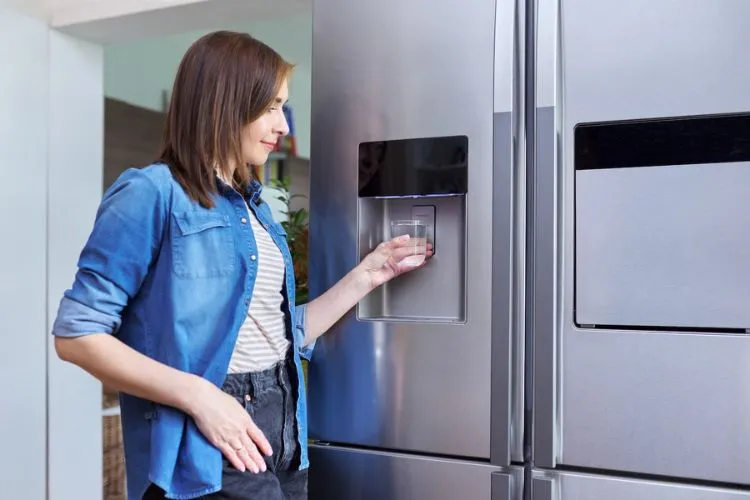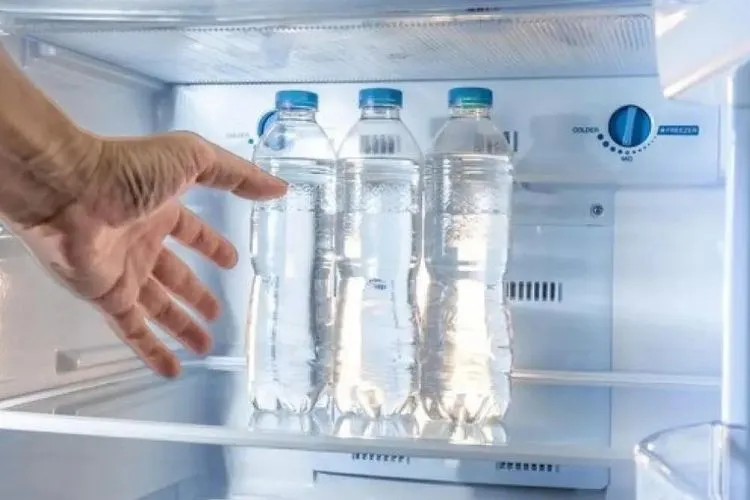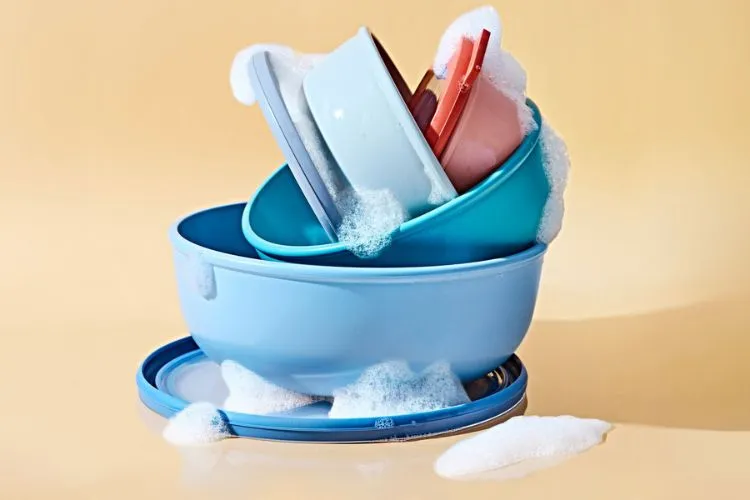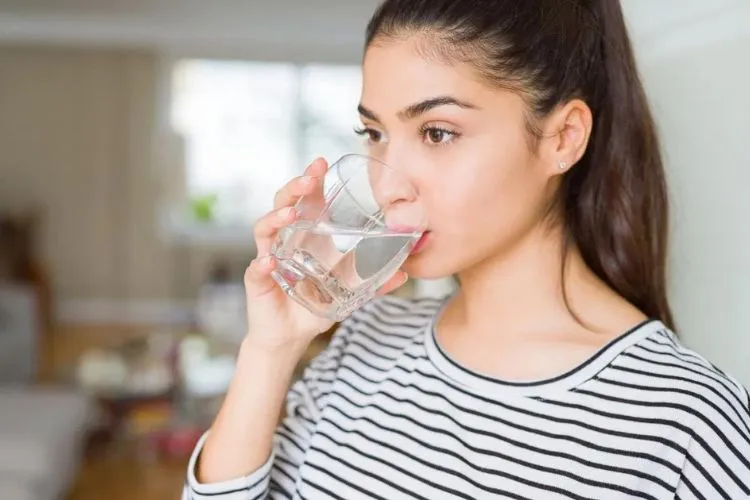Staying hydrated is essential for maintaining health and wellness. While tap water is a common go-to, filtered water is often a preferred choice due to its purity and taste.
For those who like their water cold, storing filtered water in the fridge is a convenient option.
But it raises the question, how long does filtered water last in the fridge?
This article provides an insight into the shelf life of filtered water in the fridge and offers practical tips for storage and maintenance.

💦 What is Filtered Water?
Filtered water is tap water that has passed through filtering mechanisms to remove impurities such as sediment, chlorine, and bacteria.
Filters use various technologies like activated charcoal, reverse osmosis, and ultraviolet light to purify the water.
These filtering techniques not only improve the safety of water but also enhance its taste and odor, making it a preferable choice for many households.
💦 How Long Does Filtered Water Last in the Fridge?
Several factors influence the longevity of filtered water in the refrigerator. The container’s material, fridge temperature settings, and the water’s initial quality all play a role.
Under optimal conditions, filtered water can last in the fridge for a few weeks. However, it’s crucial to stay vigilant for signs that water has gone bad, such as an off smell or taste.
💦 Container Types and Their Impact

Different containers affect the shelf life of filtered water distintively. Glass containers are inert and won’t leach chemicals into the water, making them a top choice.
Plastic containers are lightweight and shatterproof but may degrade over time, potentially releasing chemicals. Stainless steel is durable and also inert but may not be transparent to allow you to observe the water’s clarity.
Each container has its merits and demerits, and choosing the right one depends on personal preference and practicality.
💦 Best Practices for Storing Filtered Water in the Fridge
Storing water at the correct temperature is vital. The fridge should be set to cool below 40 degrees Fahrenheit to impede bacterial growth. Containers should be sealed tightly to prevent contamination.
It is advisable to change the water every few weeks to ensure freshness. Following these best practices helps preserve the purity and taste of the water.
💦 Safety Considerations
Drinking old or improperly stored water can be risky. Water that has been left too long might become a breeding ground for bacteria.
The signs of compromised water include cloudy appearance and an off odor or taste. If these signs are present, it is best to dispose of the water and clean the container thoroughly.
💦 Cleaning and Maintenance Tips for Storage Containers

Using a clean container for storing filtered water is non-negotiable. Containers should be washed with soapy water and rinsed well before the initial use and after every refill.
Drying containers completely before use helps prevent mold and bacterial growth. These steps are essential to prevent contamination and ensure the water remains safe to drink.
💦 Alternatives to Storing Filtered Water in the Fridge
While storing filtered water in the fridge is common, there are alternatives. Filtering water on demand or using water dispensers with built-in filters can be more convenient for some.
These methods provide fresh filtered water without the need for refrigeration. Evaluating the pros and cons of each method can help individuals choose the best option for their needs.
💦 Pro Tips
Mark the fill date on water containers as a reminder for replacement. Clean and replace water routinely by setting reminders. Regularly check and maintain the fridge and its temperature to ensure the best storage conditions for filtered water.
💦 Health Benefits of Regularly Consuming Filtered Water
Regular consumption of filtered water supports optimal hydration, crucial for bodily functions, and reduces the risk of consuming harmful contaminants.
It can promote clearer skin, aid digestion, and enhance nutrient absorption, significantly contributing to overall health and wellness.
💦 Legal and Safety Standards for Drinking Water

The Environmental Protection Agency (EPA) in the United States sets legal and safety standards for drinking water to protect public health. These regulations cover over 90 contaminants, including lead, chlorine, arsenic, and E. coli.
The standards specify maximum contaminant levels (MCLs) to ensure water safety. Local regulatory bodies may implement additional requirements to address specific regional concerns. Ensuring filtered water meets or exceeds these standards is crucial.
High-quality filtration systems can remove contaminants that municipal water treatment may not fully eliminate, offering an additional layer of protection.
By adhering to these guidelines, households can significantly reduce the risk of waterborne illnesses and contribute to the overall well-being of their communities.
Such practices support the maintenance of a clean, safe, and healthy water supply, emphasizing the essential role of legal and safety standards in the consumption of drinking water.
frequently asked questions (FAQs)
How can I extend the shelf life of filtered water in the fridge?
To extend its shelf life, make sure the water is stored in a clean, airtight container at the right temperature. Change the water periodically, and track the storage time.
Does the taste of filtered water change over time, even in the fridge?
The taste of filtered water can change over time due to factors like container material or bacterial growth. Using the correct storage methods can help maintain its freshness.
Can I freeze filtered water to make it last longer?
Freezing filtered water can extend its shelf life, but it’s important to use a suitable container that can withstand freezing temperatures without cracking.
Is it safe to refill the same container with filtered water without washing it?
Always clean the container between refills to avoid bacterial contamination and preserve the water’s quality.
How does refrigerator filtration compare to pitcher or faucet filters?
Refrigerator filters typically have longer lifespans and larger capacities, but pitcher and faucet filters can be more convenient and easier to maintain.
Conclusion:
Understanding how long filtered water lasts in the fridge is important for health and safety. Mindful practices like using the right containers, adhering to ideal temperatures, and proper maintenance can extend the water’s lifespan.
It’s essential to be alert to signs of spoilage and to prioritize cleanliness in water storage habits.

Devon Shorts, a seasoned expert with over a decade of experience in water safety, shares valuable insights on this blog “Aqua Safety Plus”. Trust his expertise to keep your water clean and your family safe.
